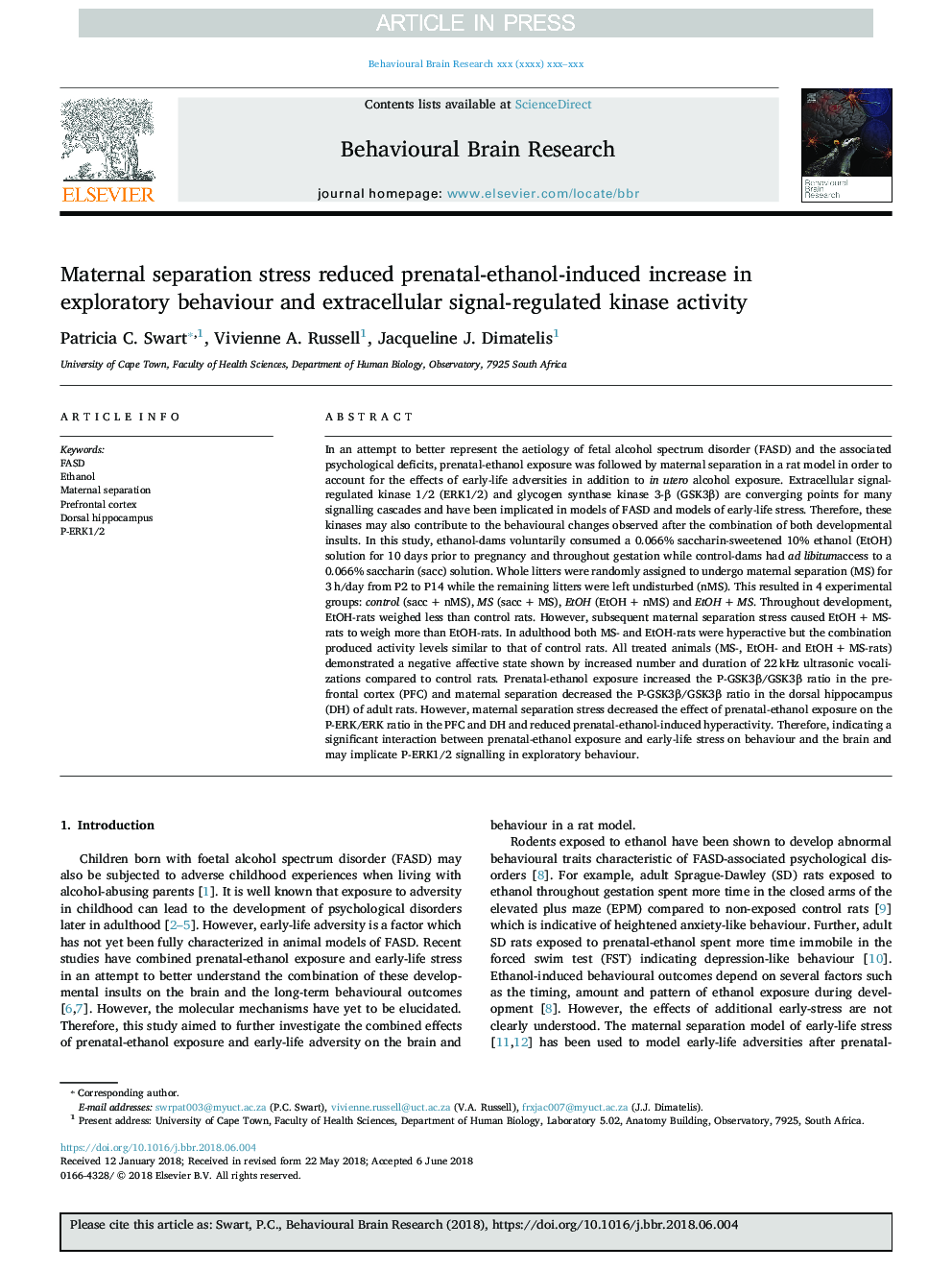| Article ID | Journal | Published Year | Pages | File Type |
|---|---|---|---|---|
| 11031787 | Behavioural Brain Research | 2019 | 13 Pages |
Abstract
In an attempt to better represent the aetiology of fetal alcohol spectrum disorder (FASD) and the associated psychological deficits, prenatal-ethanol exposure was followed by maternal separation in a rat model in order to account for the effects of early-life adversities in addition to in utero alcohol exposure. Extracellular signal-regulated kinase 1/2 (ERK1/2) and glycogen synthase kinase 3-β (GSK3β) are converging points for many signalling cascades and have been implicated in models of FASD and models of early-life stress. Therefore, these kinases may also contribute to the behavioural changes observed after the combination of both developmental insults. In this study, ethanol-dams voluntarily consumed a 0.066% saccharin-sweetened 10% ethanol (EtOH) solution for 10 days prior to pregnancy and throughout gestation while control-dams had ad libitumaccess to a 0.066% saccharin (sacc) solution. Whole litters were randomly assigned to undergo maternal separation (MS) for 3â¯h/day from P2 to P14 while the remaining litters were left undisturbed (nMS). This resulted in 4 experimental groups: control (saccâ¯+â¯nMS), MS (saccâ¯+â¯MS), EtOH (EtOHâ¯+â¯nMS) and EtOHâ¯+â¯MS. Throughout development, EtOH-rats weighed less than control rats. However, subsequent maternal separation stress caused EtOHâ¯+â¯MS-rats to weigh more than EtOH-rats. In adulthood both MS- and EtOH-rats were hyperactive but the combination produced activity levels similar to that of control rats. All treated animals (MS-, EtOH- and EtOHâ¯+â¯MS-rats) demonstrated a negative affective state shown by increased number and duration of 22â¯kHz ultrasonic vocalizations compared to control rats. Prenatal-ethanol exposure increased the P-GSK3β/GSK3β ratio in the prefrontal cortex (PFC) and maternal separation decreased the P-GSK3β/GSK3β ratio in the dorsal hippocampus (DH) of adult rats. However, maternal separation stress decreased the effect of prenatal-ethanol exposure on the P-ERK/ERK ratio in the PFC and DH and reduced prenatal-ethanol-induced hyperactivity. Therefore, indicating a significant interaction between prenatal-ethanol exposure and early-life stress on behaviour and the brain and may implicate P-ERK1/2 signalling in exploratory behaviour.
Related Topics
Life Sciences
Neuroscience
Behavioral Neuroscience
Authors
Patricia C. Swart, Vivienne A. Russell, Jacqueline J. Dimatelis,
